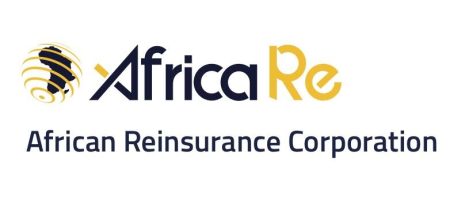The National Insurance Commission (NAICOM) has identified microinsurance and digital platforms as key drivers for increasing the adoption of retirement products, particularly within the informal sector. This assertion was made by the Commissioner for Insurance, Olusegun Omosehin, during the Ispenonline Retirement Summit held in Lagos. Omosehin, represented by the Lagos Director of NAICOM, Julius Odidi, addressed the summit’s theme, “Attaining Good Retirement Amid Economic Headwinds,” emphasizing the challenges retirees face, including inflation and market volatility. He underscored the need for regulators and stakeholders to proactively protect the interests of retirees in these turbulent times.
Omosehin highlighted three critical priorities for navigating the current economic climate: policy alignment across insurance, pension, and financial sectors; ensuring regulations are enabling, responsive, and focused on long-term value; and designing affordable, relevant, and inclusive retirement products, particularly for the informal sector. He stressed the immense potential of microinsurance and digital platforms in reaching this significant demographic. Furthermore, Omosehin emphasized the crucial role of educating citizens on retirement planning, insurance benefits, and risk management, advocating for its integration into national strategy. He stressed that these economic challenges represent the real-life experiences of millions, requiring a collaborative and innovative response from regulators, insurers, pension administrators, and policymakers.
The Commissioner highlighted the increasing anxieties of individuals approaching retirement regarding income sustainability, healthcare costs, and the adequacy of their pension savings. He emphasized the need for the insurance sector to provide long-term financial protection and risk management through products like annuities, life insurance, and retirement savings plans. These instruments, he argued, are essential for ensuring peace of mind during retirement and must be accessible, transparent, and adaptable to the evolving needs of an aging population. NAICOM reiterated its commitment to increasing insurance penetration, bolstering consumer confidence, and fostering collaboration across the financial services landscape. The commission is actively working with stakeholders to develop frameworks that enhance the integration of insurance and pension systems, particularly in addressing longevity risks and post-retirement income security.
Adetola Adegbayi, founder of Mutual Specialists and keynote speaker at the summit, urged retirees and those nearing retirement to seek guidance from qualified personal finance and financial risk management experts rather than from individuals promoting speculative ventures. She emphasized the importance of delayed gratification in building a secure retirement, advocating for building reserves during working years, investing in future infrastructure, and preserving accumulated wealth. Adegbayi also promoted the 30-30-30-10 rule, which allocates resources for living expenses, discretionary spending, savings, and debt repayment, respectively, during one’s active working life.
For retirement planning, Adegbayi recommended a diversified portfolio encompassing bonds, stocks, real estate, and cash. She further proposed the establishment of a national wealth management initiative that goes beyond mere budgetary considerations. This initiative, she argued, would provide a more comprehensive and strategic approach to national financial well-being, incorporating long-term planning and wealth creation strategies for citizens. This forward-thinking perspective emphasizes not only individual financial responsibility but also the need for a supportive national framework that empowers citizens to build secure financial futures.
This call for a national wealth management initiative underscores the growing recognition of the need for a broader, more proactive approach to financial planning and security. It moves beyond the traditional focus on individual retirement planning and embraces a collective responsibility for building a financially secure nation. This holistic approach emphasizes financial literacy, access to diverse financial products, and a robust national framework that supports long-term financial well-being for all citizens, particularly in the face of economic headwinds and an aging population. By incorporating elements of education, accessibility, and strategic national planning, this approach aims to create a more resilient and secure financial future for individuals and the nation as a whole.
The convergence of microinsurance, digital platforms, and a focus on financial literacy represents a promising path towards enhanced retirement security, particularly for individuals in the informal sector. By leveraging technology and promoting financial awareness, the insurance and pension industries can create more inclusive and accessible retirement solutions. This, coupled with a national commitment to wealth management, has the potential to transform the retirement landscape, offering greater peace of mind and financial security for individuals and contributing to a more stable and prosperous future for the nation.














